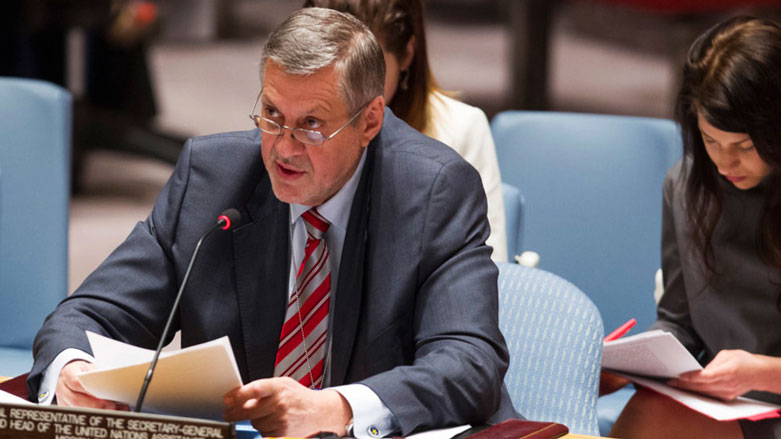UN Security Council session on Iraq focuses on election, counter-terrorism

ERBIL (Kurdistan 24) – The United Nations (UN) Security Council held a special session on Iraq Wednesday in which the international body's envoy to the embattled nation spoke of recent national elections, government formation, the ongoing humanitarian crisis, and the security situation.
Briefing the 15-member Security Council, Ján Kubiš, the top UN official in Iraq, urged the country’s political leaders "to draw the necessary conclusions" from the fact that less than half the country’s people exercised their right to vote in national elections held on May 12.
When forming the next government, he said, "leaders must ensure full participation of women, both in political negotiations, as well as at the highest level of decision making in the country," according to video and a statement released by the UN on Thursday.
Iraqi leaders, he continued, must prioritize "inclusive, non-sectarian dialogue, and ensure the swift formation" of a new “truly national” government "that reflects the will of the people of Iraq."
Kubiš, who heads the United Nations Assistance Mission for Iraq (UNAMI), called on Iraqi authorities to investigate claims of fraud in the election and "to adjudicate all appeals properly." On May 17, the UN called on Iraq to "immediately" investigate the claims.
He also appealed to the international community to step up support for vulnerable populations, telling the council that a humanitarian crisis persists across Iraq, with over 2.1 million people displaced, but severely limited resources were available to provide aid or implement demining programs.
The Security Council is made up of five permanent member states (China, France, Russia, the UK, and the US) and ten non-permanent member states which serve two-year terms (currently, Bolivia, Côte d’Ivoire, Equatorial Guinea, Ethiopia, Kazakhstan, Kuwait, Netherlands, Peru, Poland, and Sweden).
Also briefing the session was Vladimir Voronkov, head of the UN Counter-Terrorism Office, who urged "continued determination of the Iraqi Government to consolidate the military victory" against the Islamic State (IS) "as it transitions from a military-focused counter-terrorism approach to a more comprehensive one, which includes prevention, law enforcement and criminal justice components."
“It was the conclusion of our Iraqi interlocutors that national reconciliation and reconstruction, owned and driven by the Iraqi people," he said, that was "essential to prevent the resurgence of violent extremism and terrorism in Iraq.”
Michèle Coninsx, Assistant Secretary‑General and Executive Director of the Counter‑Terrorism Committee Executive Directorate, spoke as well, describing efforts taken to combat Iraq’s terrorist threat through non‑military means since 2015.
"The Directorate identified 33 key recommendations on ways to strengthen its overall response," she said, "spotlighting the need for technical assistance in such priority areas as legal and judicial matters, countering financing of terrorism, law enforcement and border control and countering radicalization and incitement to commit terrorist acts. "
No resolutions regarding Iraq were introduced or voted on as part of the Security Council session.
